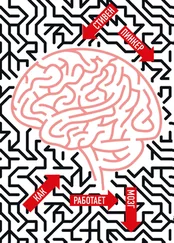Geisel T. S. 1955. On beyond zebra, by Dr. Seuss. New York: Random House.
Gelman S. A. & Markman E. 1987. Young children’s inductions from natural kinds: The role of categories and appearances // Child Development, 58. P. 1532–1540.
Gentner D. & Jeziorski M. 1989. Historical shifts in the use of analogy in science // B. Gholson W. R. Shadish Jr., R. A. Beimeyer & A. Houts (Eds.), The psychology of science: Contributions to metascience. New York: Cambridge University Press.
Geschwind N. 1979. Specializations of the human brain // Specific American, September.
Geschwind N. & Galaburda A. 1987. Cerebral lateralization: Biological mechanisms, associations, and pathology. Cambridge, Mass.: MIT Press.
Gibbons A. 1992. Neanderthal language debate: Tongues wag anew // Science, 256. P. 33–34.
Gibbons A. 1993. Mitochondrial Eve refuses to die // Science, 259. P. 1249–1250.
Gibson E. 1998. Linguistic complexity: Locality of syntactic dependencies // Cognition 68. P. 1–76.
Gleitman L. R. 1981. Maturational determinants of language growth // Cognition, 10. P. 103–114.
Gleitman L. R. 1990. The structural sources of verb meaning // Language Acquisition, 1. P. 3–55.
Goldsman M. 1992. Quayle quotes. Various computer networks.
Goodglass H. 1973. Studies on the grammar of aphasics // H. Goodglass & S. E. Blumstein (Eds.), Psycholinguistics and aphasia. Baltimore: Johns Hopkins University Press.
Goodman N. 1972. Seven strictures on similarity // Problems and projects. Indianapolis: Bobbs-Merrill.
Gopnik M. 1990a. Dysphasia in an extended family // Nature. P. 344, 715.
Gopnik M. 1990b. Feature blindness: A case study // Language Acquisition. P. 139–164.
Gopnik M. 1993. The absence of obligatory tense in genetic language impairment. Unpublished manuscript, Department of Linguistics, McGill University.
Gopnik M. & Crago M. 1991. Familial aggregation of a developmental language disorder // Cognition, 39. P. 1–50.
Gordon P. 1986. Level-ordering in lexical development // Cognition, 21. P. 73–93.
Gould J. L. & Marler P. 1987. Learning by instinct // Scientific American, January.
Gould S. J. 1977. Why we should not name human races: A biological view // S. J. Gould. Ever since Darwin. New York: Norton.
Gould S. J. 1981. The mismeasure of man. New York: Norton.
Gould S. J. 1985. The flamingo’s smile: Reflections in natural history. New York: Norton.
Gould S. J. & Lewontin R. C. 1979. The spandrels of San Marco and the Panglossian program: A critique of the adaptationist programme // Proceedings of the Royal Society of London, 205. P. 281–288.
Green D. M. 1976. An introduction to hearing. Hillsdale, N. J.: Erlbaum.
Greenberg J. H. (Ed.) 1963. Universals of language. Cambridge, Mass.: MIT Press.
Greenberg J. H. 1987. Language in the Americas. Stanford, Calif.: Stanford University Press.
Greenberg J. H., Ferguson C. A. & Moravcsik E. A. (Eds.) 1978. Universals of human language (4 vols.). Stanford, Calif.: Stanford University Press.
Greenfield P. M. & Savage-Rumbaugh E. S. 1991. Imitation, grammatical development, and the invention of protogrammar by an ape // Krasnegor et al. 1991.
Grice H. P. 1975. Logic and conversation // P. Cole & J. L. Morgan (Eds.), Syntax and Semantics 3: Speech acts. New York: Academic Press.
Grimshaw J. 1990. Argument structure. Cambridge, Mass.: MIT Press.
Grosjean F. 1982. Life with two languages: An introduction to bilingualism. Cambridge, Mass.: Harvard University Press.
Guy J. 1992. Genes, peoples, and languages? An examination of a hypothesis by Cavalli-Sforza // LINGUIST electronic bulletin board, January 27.
Hakuta K. 1986. Mirror of language: The debate on bilingualism. New York: Basic Books.
Hale K., Krauss M., Watahomigie L, Yamamoto A., Craig C., Jeanne L. M., & England N. 1992. Endangered languages // Language, 68. P. 1–42.
Halle M. 1983. On distinctive features and their articulatory implementation // Natural Language and Linguistic Theory, 1. P. 91–105.
Halle M. 1990. Phonology // Osherson & Lasnik 1990.
Harding R. M. & Sokal R. R. 1988. Classification of the European language families by genetic distance // Proceedings of the National Academy of Science, 85. P. 9370–9372.
Hardy-Brown K., Plomin R. & DeFries J. C. 1981. Genetic and environmental influences on the rate of communicative development in the first year of life // Developmental Psychology, 17. P. 704–717.
Harman G. (Ed.) 1974. On Noam Chomsky: Critical essays. New York: Doubleday.
Harnad S. R., Steklis H. S. & Lancaster J. (Eds.) 1976. Origin and evolution of language and speech (special volume) // Annals of the New York Academy of Sciences, 280.
Harris R. A. 1993. The linguistics wars. New York: Oxford University Press.
Hart J., Berndt R. S. & Caramazza A. 1985. Category-specific naming deficit following cerebral infarction // Nature, 316. P. 439–440.
Haugeland J. (Ed.) 1981. Mind design. Cambridge, Mass.: MIT Press.
Hawkins J. (Ed.) 1988. Explaining language universals. Basil Blackwell.
Hayakawa S. I. 1964. Language in thought and action (2nd ed.). New York: Harcourt Brace.
Heath S. B. 1983. Ways with words: Language, life, and work in communities and classrooms. New York: Cambridge University Press.
Heider E. R. 1972. Universals in color naming and memory // Cognitive Psychology, 3. P. 337–354.
Hillis A. E. & Caramazza A. 1991. Category-specific naming and comprehension impairment: A double dissociation // Brain, 114. P. 2081–2094.
Hinton G. E. & Nowlan S. J. 1987. How learning can guide evolution. Complex Systems, 1. P. 495–502.
Hirschfeld L. A. & Gelman S. A. (Eds.) 1994. Domain specificity in cognition and culture. New York: Cambridge University Press.
Hirsh-Pasek K. & Golinkoff R. M. 1991. Language comprehension: A new look at some old themes // Krasnegor et al. 1991.
Hockett C. F. 1960. The origin of speech // Scientific American, 203. P. 88–111.
Hofstadter D. R. 1985. Metamagical themes. New York: Basic Books.
Holden C. 1987. The genetics of personality // Science, 237. P. 598–601.
Holm J. 1988. Pidgins and creoles (2 vols.). New York: Cambridge University Press.
Holmes R. B. & Smith B. S. 1977. Beginning Cherokee (2nd ed.). Norman, Okla.: University of Oklahoma Press.
Hubel D. 1988. Eye, brain, and vision. San Francisco: Freeman.
Humboldt W. von. 1836/1972. Linguistic variability and intellectual development (G. C. Buck & F. Raven, Trans.). Philadelphia: University of Pennsylvania Press.
Hurford J. R. 1989. Biological evolution of the Saussurean sign as a component of the language acquisition device // Lingua, 77. P. 187–222.
Hurford J. R. 1991. The evolution of the critical period in language acquisition // Cognition, 40. P. 159–201.
Huttenlocher P. R. 1990. Morphometric study of human cerebral cortex development // Neuropsychologia, 28. P. 517–527.
Ingram D. 1989. First language acquisition: Method, description, and explanation. New York: Cambridge University Press.
Jackendoff R. S. 1977. X-bar syntax: A study of phrase structure. Cambridge, Mass.: MIT Press.
Jackendoff R. S. 1987. Consciousness and the computational mind. Cambridge, Mass.: MIT Press.
Читать дальше
Конец ознакомительного отрывка
Купить книгу











